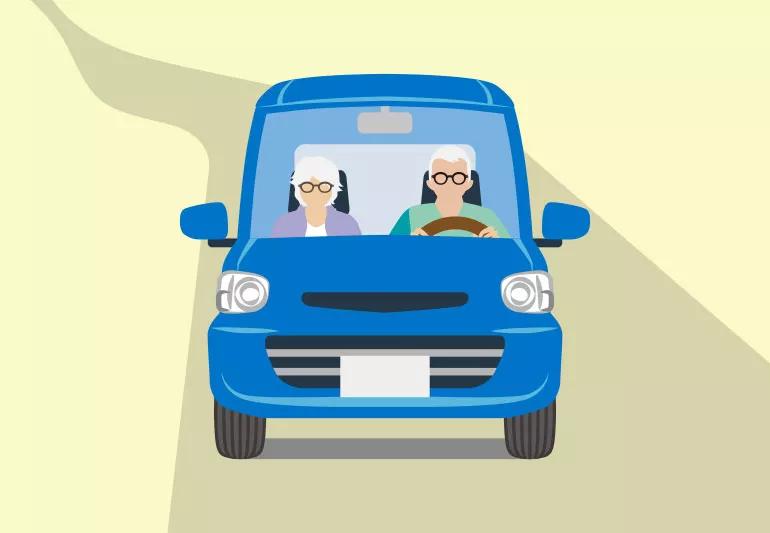What to look for and how to handle signs of impaired driving

Image content: This image is available to view online.
View image online (https://assets.clevelandclinic.org/transform/f17a1718-774f-432e-b512-1146d4c2f2e1/elderDriving-539211800-770x533-1_jpg)
elderly man driving car
If you suspect your elderly parent isn’t driving as well as they used to, there are actions you can take to help.
Advertisement
Cleveland Clinic is a non-profit academic medical center. Advertising on our site helps support our mission. We do not endorse non-Cleveland Clinic products or services. Policy
Some older adults can drive safely in their 80s and even early 90s, but many seniors develop hearing, vision, cognitive and other problems that impair their ability to drive safely. Loss of the ability to drive can isolate older adults, leading to poor nutrition, health problems and depression.
“Determining your parents’ driving ability is the first step toward helping them maintain their independence – and their health,” says internist and geriatrics specialist Kenneth Koncilja, MD.
“There are a number of things you can look for when deciding whether your parent needs to have a professional driving assessment,” says Dr. Koncilja.
Take a ride with your parent and allow them to drive you to the supermarket or other familiar destination. During the trip, observe whether your loved one can:
“Remember, just because mom has a different driving style doesn’t mean she’s a bad or unsafe driver,” he says. Some adult children complain that their parent is a slow driver, or that dad chooses to use a route that allows him to avoid freeways, making the trip longer.
Advertisement
This is actually a type of self-monitoring, which shows that your loved one is aware of personal limitations and is self-restricting as a precaution.
If you notice that your parent has trouble handling things at home, such as preparing a meal with three or four courses, or other multi-step tasks, they may also have trouble handling more complex driving situations.
Make an appointment with your loved one’s physician. Ask the doctor to determine if an occupational therapy driving evaluation could help your parent. The doctor can write a prescription for the evaluation and periodic visits to the driving clinic, if necessary.
Patients with neurocognitive disorders (dementia) should include family or caregivers in the discussion with their physician. A diagnosis of dementia is most predictive of unsafe driving in older adults. Predictors of unsafe driving include recent traffic citations, motor vehicle accidents and self-reported situational avoidance, such as limiting driving to familiar neighborhoods.
“My goal is to help aging adults stay on the road as long as possible without jeopardizing safety,” says Dr. Koncilja.
Additionally, make sure your loved one sees the eye doctor regularly so that their eyeglass prescription is always up to date.
Here are some common restrictions that can help elderly drivers:
It’s easier to talk to your parent about self-restricting based on their individual limitations and comfort levels. Seeing a driver rehabilitation specialist can help, too. The evaluator can offer insight for restrictions and tips to enhance driving ability based on your parent’s individual needs.
“You see your eye doctor, dentist and primary physician on a regular basis. It’s a good idea to visit your professional driving evaluator for regular checkups, too,” he says. “These regular assessments can actually help seniors keep driving safely for longer.”
Advertisement
Advertisement

Delivered every Tuesday!
Sign up for our Health Essentials emails for expert guidance on nutrition, fitness, sleep, skin care and more
Learn more about our editorial process.
Advertisement
Living longer is more than just growing older — it’s also about living life to its fullest
Turns out your health really is in your hands
When free radicals don’t have antioxidants to keep them in check, they go rogue
A look at bone buildup and loss throughout your life
The short answer from a pain specialist
It’s a natural process, but stress and smoking don’t help
Advice for preventing and treating health issues
What you can do about hearing and vision loss
Type 2 diabetes isn’t inevitable with these dietary changes
Applying a hot or cold compress can help with pain
Pump up your iron intake with foods like tuna, tofu and turkey